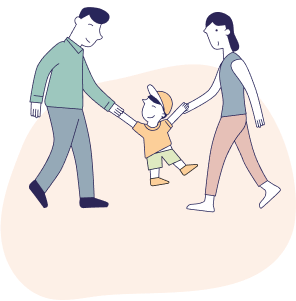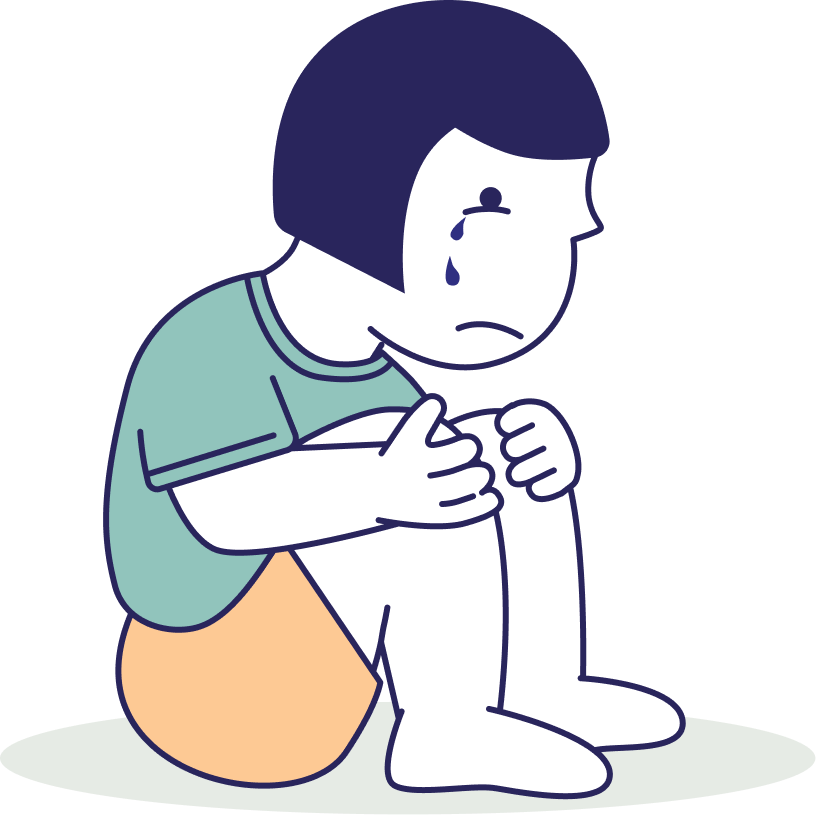Co-parenting
Even after the divorce, you and the other parent still have the duty of parenting your children. This should remain a priority for both of you.

How to Make Co-Parenting Work

Co-parenting arrangements detail the responsibilities you and the other parent have in bringing up your children after divorce. Having arrangements that co-parents have agreed on beforehand will provide both children and parents with stability and predictability after a divorce. Children do best when parents minimise their conflict, and this can be attained through having clear and consistent arrangements.
How to Make Co-Parenting Work
The needs of your children will vary according to their ages. You may find some guidelines on what children of the different age groups require in terms of contact time with each parent below. At the end of the day, having clear, predictable, and consistent routines is most crucial for children of any age. You and the other parent would also need to monitor how your children are coping with the arrangements and make changes accordingly to best suit your children’s needs.

- Infants and toddlers need a predictable and consistent waking, eating, and sleeping schedule to allow them to develop their skills for self-soothing and self-regulation.
- You and the other parent need to communicate well about your children’s routines and habits, such as sleeping, waking and feeding cycles, and methods of soothing.
- Children at this age require short separations and smooth transitions between the parents. If parents are unable to achieve these, it might benefit the children for the care parent to play the primary caregiving role, whilst allowing their children to have frequent short contacts with the access parent.
- Contact time with the access parent should include opportunities for caregiving responsibilities, such as feeding, soothing, bathing, playing, and putting the infant to sleep.

- Pre-schoolers are more aware of their surroundings and the happenings around them.
- They will begin to be able to tolerate longer separations from each parent since they are developing better memory.
- Set clear, predictable, and consistent routines to provide them with stability and security over time. Pre-schoolers may still exhibit fears of separation, clinginess, and stress.
- Allow your children to bring transition objects (e.g. stuffed animal or favourite blanket) with them as they shuffle between the two homes to reduce their anxiety or sadness. Be aware of how your children handle the transitions.

- Children at this age will begin engaging in various activities and building peer relationships.
- Factor in arrangements for these activities and your children’s relationships with their peers into your parenting schedule.
- It would be best for both parents to be involved in the children’s developmental and functional activities such as homework and fetching your children from extra-curricular activities, instead of being involved in limited areas such as only engaging in recreational activities with them over the weekend.

- Teenagers will begin developing their identities outside the family system.
- Ensure that arrangements are made for your teenager’s educational and social activities.
- Maintain good communication and clear rules with your teenager.
- From the age of 16 years old, teenagers may also wish to have a greater say in the planning of their living arrangements and time spent with each parent.
Things to Consider
As you and the other parent work out arrangements to co-parent your children together, keep your children’s unique needs and preferences as key considerations. If you have more than one child, it is generally best to make similar arrangements for your children and keep siblings together.
These are some questions that you can use to guide your discussion on what parenting arrangements would best meet your children’s needs after your divorce. Your agreed upon responses to these questions, discussed with the other parent, can be incorporated into the Parenting Plan which is required when filing for divorce.
Your Children’s Health and Special Needs
- What do your children need at this age?
- What are your children’s temperaments and personalities?
- Do your children have any medical or health condition that needs special care?
Your Child’s Social & Educational Needs
- What will your children be giving up if they had to change schools?
- What relationships do your children have with their friends and teachers?
- How will supervision and transportation for activities outside of school be arranged for your children?
- How will you continue to support your children’s relationships with their extended family (e.g. grandparents, cousins, aunts and uncles)?
- How will the arrangements be similar or different during public holidays and school holidays?
You & The Other Parent
- How well can you and the other parent communicate and cooperate?
- Will you be able to follow the parenting time arrangements you decide on with consistency?
- Is your house and the other parent’s house too far apart to maintain regular and frequent contact?
- How and where will handovers take place?
- Are there any parenting concerns such as domestic violence, substance abuse, or mental health issues for yourself or the other parent?
- What financial arrangements will be made for your children’s needs? (You may wish to refer here.)
Simon’s Story
"A divorce is a like a tsunami, while it has the ability to wash away a village that took years of effort to build, we can also choose how we want to pick up the pieces for our newly reconstructed family after the waves of destruction."
Read More
